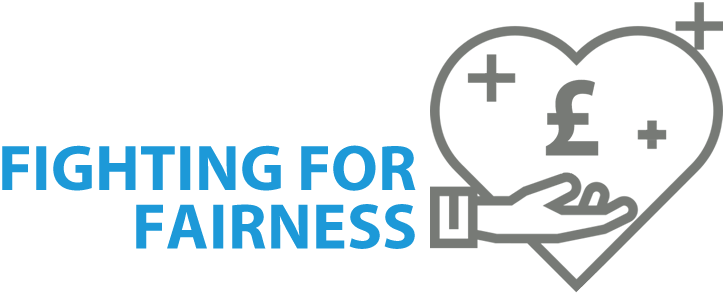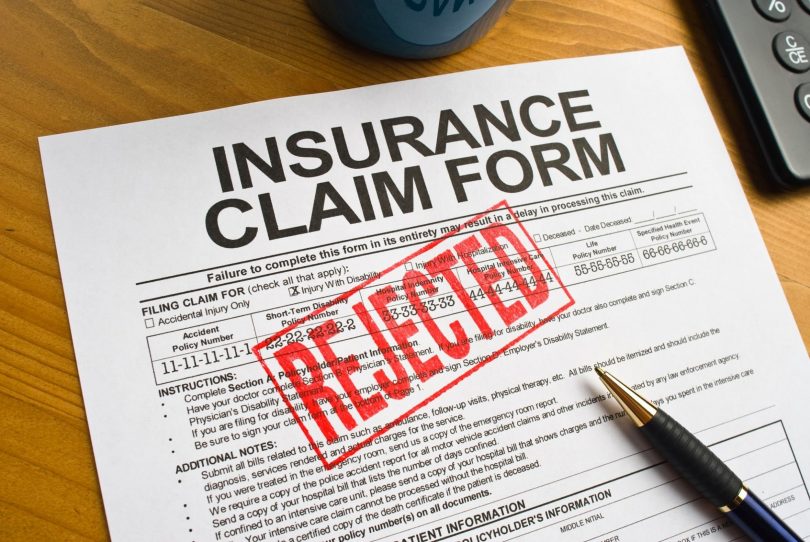If you are a person with a pre-existing medical condition, you may already know that getting approved for life insurance can be a challenging and frustrating process, especially without a specialist broker. You’ve probably filled out the forms, provided all the necessary information, and waited anxiously for a response. But when that response finally arrives, it’s not what you were hoping for – your life insurance application has been declined.
You may be wondering, “If I have life insurance declined, does this mean I’m uninsurable?” It’s a common question in this kind of scenario, and it’s understandable to feel discouraged or defeated if you receive a rejection notice, especially since it’s a matter directly concerning your life. But the truth is, just because one insurance company declined your application doesn’t necessarily mean you’re uninsurable.
So, the purpose of this article is to provide you with information on what to do if your life insurance application gets declined and to highlight the benefits of working with a specialist broker. Let’s identify your options and take the first step toward finding the right life insurance policy for you in 2023.
We will be looking at the following in this article:
Understanding the Underwriting Process
Before we dive into what to do if your life insurance application gets declined, it’s important to understand how life insurance underwriting works in today’s conditions. Underwriting is the process by which an insurance company assesses an applicant’s risk factors and decides whether or not to offer them a policy.
Medical underwriting is a critical part of this process, especially for people with existing medical conditions, most probably the majority of the people being in the same state as you. During medical underwriting, the insurance company evaluates an applicant’s health history, current health status, and any medications or treatments they are receiving.
The results of the medical underwriting process can have a significant impact on an applicant’s ability to get approved for life insurance, as well as the cost of their premiums in 2023. The more significant the risk factors, the higher the premiums are likely to be.
Other factors that can influence life insurance premiums include age, gender, occupation, and lifestyle choices like smoking or alcohol consumption. All of these factors are taken into account during the underwriting process to determine the level of risk associated with insuring the applicant.
It’s essential to keep in mind that every insurance company has its own underwriting guidelines and risk assessment methods. So, even if one company declines your application, another may be willing to offer you a policy at a different rate. Now that we have a better understanding of life insurance underwriting, let’s explore some common reasons why applications get rejected.
Reasons for Life Insurance Application Rejection
When it comes to life insurance applications, there are several common reasons why they get rejected. One of the most significant reasons is, as we briefly discussed before, a medical condition. Insurance companies are in the business of managing risk, and pre-existing conditions can represent a significant financial risk for insurers.
Some medical conditions are considered high-risk, and insurance companies may reject an application automatically if an applicant has, for example, cancer, heart disease, and HIV/AIDS. However, using a specialist broker can help obtain cover for these conditions. Additionally, other conditions may be less severe but can still impact an applicant’s ability to get approved for life insurance or result in higher premiums.
If you have a pre-existing medical condition, it’s essential to be upfront and honest about it when filling out your application. Failing to disclose a medical condition can result in your policy being cancelled or your beneficiaries being denied a payout if you pass away.
It’s also important to note that not all insurance companies have the same underwriting guidelines. If one company declines your application due to an existing condition, it’s worth shopping around and seeing if other companies are willing to offer you a policy. Check out the step-by-step guide on finding the right insurers.
Other common reasons why life insurance applications get rejected include a history of drug or alcohol abuse, a dangerous occupation, or a high-risk hobby. Some insurers may also reject applications based on an applicant’s age or overall health status.
Now that we understand some of the reasons why life insurance applications get rejected, let’s understand what to do if your application is declined.
What to Do If Your Life Insurance Application Gets Declined
Receiving a rejection notice for your life insurance application can be disheartening, yes, but it’s important not to give up hope. If your application is declined, there are several steps you can take to improve your chances of getting approved in the future.
The first thing you should do is contact your agent and/or the insurer to confirm the results of your application. It’s essential to ensure that there were no mistakes or errors made during the underwriting process that may have led to the decline.
Once you’ve confirmed the results, consider appealing the decision. If you believe that the decision was made in error or that the underwriting process was not completed correctly, you can file an appeal with the insurance company. Be sure to provide any additional information or medical records that may support your case.
If the appeal is unsuccessful, consider a specialist broker. A specialist broker already has the experience and knowledge of finding the best insurers for certain medical conditions. Using one will save you lots of time and avoid the hassle of accidentally applying to the ‘wrong’ company.
Life Insurance Specialist Broker*
Final option: try again later. Life circumstances and health statuses can change over time, and what may have been a barrier to approval in the past may no longer be an issue. Consider reapplying for life insurance in the future once your health has improved or if your situation has changed.
It’s important to note that if you are declined for life insurance, it does not mean that you are uninsurable. There are many alternative options available, and it’s essential to explore them to ensure that you have cover in place to protect your loved ones. It may be worth checking out our step-by-step guide on applying for life insurance for better detail.
No Medical Exam Life Insurance
No medical exam life insurance is a type of policy that can be appealing to those who have pre-existing medical conditions or who don’t want to undergo a medical exam as part of the underwriting process in 2023. However, as with any type of insurance, there are both pros and cons to consider before making a decision.
One of the main advantages of no medical exam life insurance is that it can be quicker and easier to obtain than traditional policies that require a medical exam. This can be particularly appealing to those who have medical conditions that could result in a decline or higher premiums with traditional policies. Additionally, some policies may offer higher cover amounts without a medical exam requirement. Another advantage of no medical exam life insurance is that the application process can be more convenient. Applicants can often complete the application online or over the phone, without the need for an in-person meeting or medical exam.
However, there are also some downsides to consider too. One of the main drawbacks of no medical exam life insurance is that it can be more expensive than traditional policies, particularly for those who are in good health. This is because the insurer is taking on more risk by not having a full picture of the applicant’s health. Another potential disadvantage is that the cover amounts available with no medical exam policies may be limited. This can be a concern for those who require higher cover amounts to adequately protect their families.
In some cases, individuals may consider no medical exam life insurance as a last resort option. These policies do not require a medical exam or health questions, but typically provide lower coverage amounts at higher premiums. If you’re having trouble finding coverage due to pre-existing conditions, you could consider looking into last-resort policies, which provide a few top picks for guaranteed cover with no medical questions asked.
The Importance of Improving Your Health for Approval
As we stated previously, the state of your health is a major factor in the underwriting process for life insurance. Insurers are in the business of assessing risk, and if you have pre-existing medical conditions or engage in risky behaviours such as smoking or heavy drinking, they may view you as a higher risk and either decline your application or charge you higher premiums. So, improving your health and lifestyle can help increase your chances of approval and lower your premiums.
Furthermore, managing chronic conditions such as diabetes, high blood pressure, or cholesterol can help improve your chances of getting approved for life insurance. Insurers may decline your application if they view your condition as poorly controlled or if you have a history of hospitalizations or complications. However, by working with your doctor to manage your condition, taking your medications as prescribed, and keeping up with regular check-ups and blood work, you can demonstrate to insurers that you’re maintaining your health.
Improving your health and lifestyle not only increases your chances of getting approved for life insurance but can also lead to overall better health and well-being. Even if you’ve been declined for cover in the past, taking steps to improve your health can help you get approved in the future and potentially lower your chances of issues regarding life insurance.
Working with a Life Insurance specialist broker
If all other options seem not to work out for you, working with a life insurance specialist broker may be the next best option for you. A specialist broker can help you navigate the complex world of life insurance and find policies that meet your unique needs.
One advantage of working with a specialist broker is that they can provide you with access to a range of different insurers and policies. Unlike a captive agent who works for a specific company, a specialist broker is typically an independent contractor who has relationships with multiple insurers. This simply saves you time since they can search around on your behalf to find policies that may be more ready to accept your risk and provide you with cover. Another advantage of working with a specialist broker is that they can provide you with personalised advice and guidance.
A good specialist broker will take the time to understand your situation, including your health history and current health status, and use this information to help you find policies that are a good fit for you. They can also help you understand the various types of policies available, including term, whole life, and universal life, and the pros and cons of each. When working with a specialist broker, it’s important to keep in mind that they are typically paid on a commission basis. This means that they receive a percentage of the premiums you pay for your policy. While this can sometimes lead to conflicts of interest, a good specialist broker will always put your needs first and help you find the best policy for your individual requirements.
To find a reputable life insurance specialist broker, start by asking friends and family members for recommendations. You can also search online for specialist brokers in your area and read reviews from past clients. When you’ve found a specialist broker you’re interested in working with, be sure to ask them about their experience working with clients who have pre-existing medical conditions and their success rate in finding cover for them.
Life Insurance Specialist Broker*
Overall, working with a life insurance specialist broker can be a good option for those who have been declined for cover or are struggling to find policies that meet their needs. A specialist broker can provide you with access to a range of insurers and policies, personalised advice and guidance, and help you find the best policy for your unique situation.
Final Words
Yes, being declined for life insurance can be a frustrating experience, especially for those with pre-existing medical conditions. However, it’s important to remember that being declined doesn’t necessarily mean that you’re uninsurable. Not at all! There are steps you can take to improve your chances of getting approved, including improving your health, working with a specialist broker, and considering alternative policies.
When all the above facts are taken into consideration, it is safe to say that If your life insurance application has been declined, the first step is to contact your agent and/or the insurer to confirm the results and understand the reason(s) for the decline. From there, you may consider appealing the decision or applying with a different insurer. Alternatively, you can work with a specialist broker to explore alternative life insurance options in 2023.
Improving your health can also play a significant role in increasing your chances of getting approved for life insurance. This can include making lifestyle changes such as quitting smoking, losing weight, and improving your diet and exercise habits.
Finally, working with a reputable life insurance specialist broker can be a valuable resource for those struggling to find cover. A specialist broker can provide you with access to a range of insurers and policies, personalised advice and guidance, and help you find the best policy for your unique situation.
Remember, being declined for life insurance doesn’t mean that you’re uninsurable. By taking the steps outlined in this article and working with trusted professionals, you can increase your chances of finding a policy that meets your needs and provides the protection you and your loved ones deserve.









